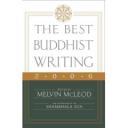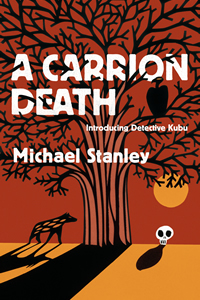It’s that charming-but-disorienting season again, campers: time for so many of us set our manuscripts aside in favor of such light-hearted feats as walking into a room with 150 strangers in it and striking up meaningful conversations, sitting through six hours of craft classes a day, and trying to compress a 400-page book into a 2-minute speech.
I refer, of course, to writers’ conference season, when hope flies skyward on the slightest provocation — followed closely by writers’ blood pressure.
Ah, we writers walk into conferences with such high expectations and nervous stomachs, don’t we? The average conference-goer’s wish list carries some fairly hefty items: to meet the agent of his dreams, who will fall flat on the floor with astonishment at his pitch and sign him on the spot; for an editor at a major publishing house to be so wowed that she snaps up the book practically before the writer finishes speaking, and to be whisked off to New York immediately for literary cocktail parties and glowing adulation. Can the New York Times’ bestseller list and Oprah’s book club be far behind?
It’s a lovely dream, certainly, but this is not what actually happens.
I’m absolutely serious about this. In actuality, no credible agent will sign a writer before having read the book in question; all of the major U.S. publishing houses have strict policies against acquiring books from unrepresented writers, and even agented works often circulate for months or more before they are picked up by publishers. Furthermore, there is generally at least a year-long lapse between the signing of a book contract and when that book appears in bookstores.
Translation: even for writers who actually ARE pitching the next DA VINCI CODE, the process takes a heck of a lot longer than the average conference-goer expects.
Even authors of brilliant, super-marketable books do not typically experience the conference fantasy treatment. At most, a great book well pitched will garner an array of, “Gee, that sounds terrific. Send me the first 50 pages,” requests. Yet even with a flurry of initial enthusiasm, months often pass between initial pitch and requests to represent.
It’s important to realize that going in; otherwise, pitching at a conference will almost inevitably feel like a tremendous letdown — or, still worse, like a sight-unseen review of your writing talent.
Worst of all, a belief that the truly talented ARE signed and sold within a matter of nanoseconds leads every year to that oh-so-common writerly misstep, rushing home to send out requested materials within a day or so of receiving the request — and realizing only after the fact that since the mad rush to get the manuscript out the door before that agent or editor changed her mind about wanting to see it meant sending it out without reading the submission IN ITS ENTIRETY, IN HARD COPY, and OUT LOUD.
I can sense my long-time readers of this blog shuddering at the ghastly fate that tends to greet such hastily sent-off submissions.
For those of you who are not yet cringing, let me ask you: how would you feel if you realized only after you’d popped a requested manuscript in the mail that there were four typos on page 1? Or that the margins were the wrong width? Or that you’d forgotten to change your memoir protagonist’s name back to your own after you’d changed it for a blind contest entry?
Ah, now everyone’s shuddering.
Realistic expectations about what conference success does and does not mean, as well as how it would serve you best to respond to the various contingencies, can save you a lot of grief — and I say this as a writer who DID land her agent through a conference pitch, had offers from several agents, AND had a book contract in hand six months thereafter.
But guess what: that probably would not have happened had I not done my pre-conference prep — or if I didn’t know walking in that I shouldn’t just sign with the first agent kind enough to ask me.
That last one caught some of you off guard, didn’t it?
So, what would be a realistic set of goals for a conference? An excellent choice would be to use the conference to skip the very annoying and time-consuming querying stage and jump directly to a request to read your manuscript.
Thus, pitching your work to at least one agent who has a successful track record representing books like yours would be a great goal — and having at least one agent ask you to mail a submission would be even better.
As would having an editor who is empowered to pick up new writers ask to see part or all of the book, or pitching to every publishing professional at the conference who deals in your kind of work. And let’s not forget the less marketing-oriented goals, such as learning a great deal from good seminars.
Or — and too many conference-goers forget to add this to their to-do lists — making connections with other writers, established AND aspiring, who write what you do. Amazing mutual support groups don’t just happen, you know; they are built over years.
If you can pull any or all of that off, you will have achieved conference success.
Not as sexy as the fantasy version, I know, but eminently do-able — and definitely worthwhile for your writing career. After all, skipping the querying stage can cut years from your agent search; think of every pitching opportunity as one less raft of a dozen query letters you are going to have to send out.
Looking a whole lot better now, isn’t it?
Your chances of pitching successfully, however, will be SUBSTANTIALLY higher if you do a bit of prep work before you go. But never fear: for the next few weeks, I shall be guiding you though the steps you need to take in order to walk in confident and prepared.
Fringe benefit: these steps are very useful to marketing any book, anywhere, anytime. If you invest the time in them, you will not only be able to pitch your work verbally; you will be able to talk about it like a pro AND transplant your pitch to your query letters.
Don’t tense up. You can do this. But it is going to take some work.
The first step to a successful pitch is to understand your book’s market appeal. Who is your target reader, and why will your book, out of the tens of thousands a good agent will see this year, satisfy that reader like nothing else currently on the market?
Hey, I told you it wasn’t going to be easy.
The second step to a successful pitch, as for a successful query, is to be familiar with the work of the person to whom you will be pitching. Find out what that agent has sold lately; find out what that editor has bought.
Find out, in short, who at the conference would be receptive to you and your book, so that you may know which to approach and pitch. This will involve some research on your part — which is why I am mentioning this at the BEGINNING of this series, and not toward its end.
I can sense some of you who have already signed up for conferences shifting restlessly in your seats, wondering if you should just skip the next few weeks of posts. “But Anne,” I hear those of you clutching registration forms protest, “I understand doing the prep work if I have a plethora of conferences from which to select, but I’m already registered for my local one. Since I’ve already been assigned a pitch appointment, why should I bother checking up on all of the agent who might eb attending?”
Well, for a couple of reasons. First, any book could be pitched in a number of different ways — and since the goal of pitching is not absolute uniformity between every pitch attempt, but rather to garner a request for pages, it makes a heck of a lot of sense to tailor your pitch to the agent who happens to be listening to it at any given moment, doesn’t it?
And no, I have absolutely no idea why conference literature so often tells potential attendees the exact opposite. I’ll be dealing with the one-size-fits-all pitch concept next week.
For now, suffice it to say that all three pictures above are from the same negative. You probably have a favorite among them; so do I. So would an agent. But they’re all the same angle on the same rose. The only difference is presentation.
Seem cryptic? Trust me, within a couple of weeks, it will seem downright obvious.
The other reason to do some background research on the agents to whom you may be pitching is — brace yourselves; this is a biggie — that it’s far from uncommon for writers to be assigned to pitch to agents who do not represent their kinds of books at all. Which means, practically inevitably, that the pitch will not end in a request for pages.
Yes, you read that correctly. Sit down and breathe deeply until that feeling of dizziness passes.
As anyone who has ever endured the agony of a mismatched pitch appointment can tell you, if your book falls outside the agent or editor’s area of preference, it doesn’t matter how good your pitch is: they will stop you as soon as they figure out that your book is categorically not for them. No amount of argument is going to help you at that point, so advance research is a very, very good idea.
I know, I know: it’s kind of cruel, isn’t it? But in fairness, conference organizers very frequently do not have enough information about prospective attendees to make a good match; most of the time, they simply rely upon the writers’ expressed preferences or — sacre bleu! — assign appointments randomly.
This means, unfortunately, that it is up to the conference attendee to check up on the agents and editors, over and above their blurbs in the conference program. Even those bear double-checking: as my long-time readers already know, the blurb agents and editors write about themselves is not always the most reliable indicator of the type of work they represent. It’s not that they’re trying to be misleading, of course; most just reuse their standard bio blurbs, which tend not to be updated all that often.
So it’s worth your while to check the agents’ websites, standard agents’ guides, Preditors and Editors, the Absolute Write water cooler, and anywhere else that you would normally go to check out an agent you were planning to query. You need to find out who these people are and what they represent.
I hear you groaning: yes, this IS every bit as much work as finding an agent to query. You don’t want to end up pitching to the wrong agent, do you?
Do be aware that since there is usually a significant time lag between when an agent signs an author and when the book hits the shelves (see above), it may be difficult to track down client lists for some agents. This does not necessarily mean that they are not active. The Publishers Marketplace database tracks sales as they happen AND provides client lists, so it’s a great place to check. This site does require a subscription ($20/month), so you might want to buttonhole some of your writing friends and pool the expense.
If you can’t find evidence that the agent to whom you are assigned to pitch is actively representing your kind of book, don’t be afraid to ask to switch appointments. Most of the time, conference organizers will honor this request — but they’ll usually be happier about it if you can suggest an alternative agent for an appointment.
That’s why it’s an excellent idea to check out ALL of the agents scheduled to attend a conference (there’s usually a list on the conference’s website), not just to one to whom you’ve been assigned. Ideally, you will want to try to pitch to anyone who might conceivably be a reasonable fit. And if none of the scheduled agents represent your kind of book, you should think very seriously about taking your conference dollars elsewhere.
Yes, having to do this level of background research is kind of a pain, but if it saves you even one wasted pitch, it’s definitely worth it. The more information you have, the more likely you are to find your best fit.
Doing your homework maximizes the probability that you will be pitching to someone who can help you get published — and not someone who will stop you three sentences in to say, “I’m sorry, I don’t represent that kind of book.”
Remember, not all agents are the same, any more than all editors are (of which more tomorrow); they have both professional specialties and personal preferences. It doesn’t make any more sense to pitch sensitive coming-of-age literary fiction to an agent who concentrates primarily on thrillers than it does to query a NF agency with a novel, does it?
Or to offer a modified purple rose to someone who would prefer a more realistic picture, for that matter.
Much, much more on conference prep and marketing follows in the days to come — and if you don’t mind a bit of motherly advice, PLEASE don’t be too hard on yourself if your learning curve is a bit sharp throughout this series. After all, no one is born knowing how to market a book.
Don’t let the process intimidate you — and keep up the good work!





































